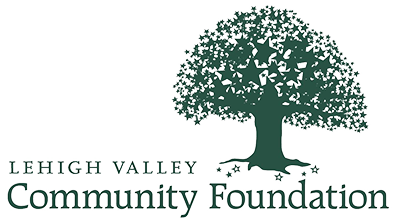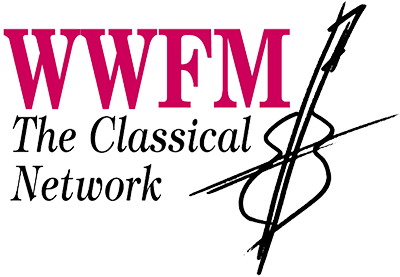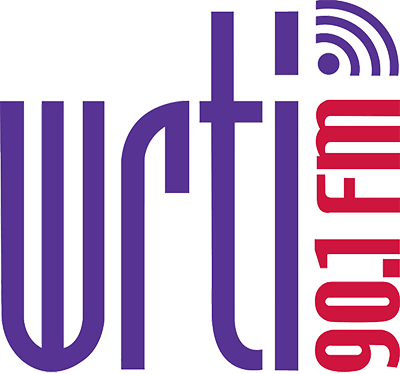Before just about every Bach Choir concert, my mom and I do a little verbal dance. I will extoll the virtues of the program in question, usually ending with the sentence, “This is going to be a really special concert.” My mom responds, “I think all of your concerts are special.” To which I usually reply, “Yes, but this one…” I’m very lucky that my mother can attend all of our concerts, which she does faithfully, and I’m beginning to see the arch wisdom of her comment. These two performances were special, particularly gratifying in many ways, but I’m unwilling to cede that they’re any more special than past concerts, or what’s on tap this coming spring. And yet, and yet…
The Marian lens of the repertoire this year offered an oft-forgtten perspective in the Nativity story. We are used to hearing about the things that happened to Mary, but less accustomed to hearing from her. The Advent-y nature of BWV 147 seemed to me to connect the New Testament to the Old Testament prophecies in a very tangible way. The cantata is justly famous for the Jesu, Joy of Man’s Desiring chorus that appears twice, but the recitatives and arias illustrate a compelling sense of musical drama and witness. At dinner last night, there was much waxing rhapsodic about the stunning musical effects of those movements (as well as the beauty in their rendering by our orchestra and soloists). That’s without mentioning the ebullient opening chorus, with its melismatic bliss and leaping arpeggiations in sixths (perhaps written to emulate the leaping of a child in the womb?). This cantata is a joy to sing, and, hopefully, to hear.
The three shorter pieces that finished the first half of the program were extremely well-received. The Choir surrounded the audience and began Robert Parson’s sublime Ave Maria. I was standing in the front, blessed with an unobstructed view of the audience. It took them a moment to settle into the new sonic landscape (spare lines of exquisite polyphony replacing exuberant orchestral accompaniment): there was a moment of looking around, followed by a relaxation and an opening to the music. I saw people literally relax into their seats, lean back, and close their eyes. I have never heard “Woo!” in reply to the peaceful calm of the Parsons, but there were shouts of appreciation after we sang the piece in Allentown. The Stanford Magnificat went very well – Tom Goeman’s playing and Ellen McAteer’s singing were amazing, and it was a delight to provide gentle choral accompaniment. The women of The Choir sounded committed to a performance of great emotional depth on Dan Gawthrop’s Mary Speaks. The piece is a bit tricky – in addition to the challenging intervals, it often sits in a harmonically rootless position. Many of the piece’s chords are in inversion, which means that they lack a bass tone (this is an admitted oversimplification of the musical theory of this piece, but it hopefully illustrates the piece’s challenge). Without a foundational bass tone, tuning can be a trial. The ladies sounded fantastic, singing with great passion and insight (and intonational accuracy!). The audience was on its feet after this set in Allentown (and several individuals were wiping tears from their eyes -both in The Choir and the audience). The Bethlehem audience was very spirited in their appreciation as well.
I thought the performance of the CPE Bach Magnificat that followed went extremely well. I would love to perform his setting as well as his father’s side-by-side sometime. I alluded to the shadow of JS Bach’s Magnificat on CPE’s setting in an earlier post, and, in the extremely gifted hands of our orchestra and soloists (as well as my colleagues in The Choir), I think a very persuasive case was made for CPE on his own right. There was much effervescence and joy in the performance, as well as the sense that, in performing this music, Mary’s ancient words were brought vividly to life. I also can’t recall our orchestra, particularly the strings, ever sounding better. The string figurations in the CPE are extremely challenging (exhausting, even), and they were played with such zest and fire (and that’s not to discount the beautiful and sensitive playing of the winds, horns, trumpets, and drums).
Our quartet of soloists was magnificent. After Ellen McAteer’s appearance, last spring, as Eve in Haydn’s Creation, I asked Greg Funfgeld, “When are we having Ellen back?” He immediately responded, with a sparkle in his eye, and much enthusiasm, “Christmas.” This was an extremely good call – the size, color, and agility of her voice are unusual in early music circles, and her performance of Bereite dir from BWV 147 is my new reference. We’ve been so lucky to hear some amazing sopranos in Bethlehem, and it’s a sheer delight to number her among them, especially at this early point in a very promising career. Daniel Taylor made a brief return from Europe for these concerts, and heads back soon, for what sounds like an endless series of Messiah performances. He is one of the great countertenors of our time, something illustrated time and again by his performances here. The fearlessness and power of his initial entrance in the Deposuit of the CPE was thrilling, and the sensitivity of his recit in BWV 147 was deeply touching. We were delighted to make the acquaintance of Isaiah Bell, whose career is clearly ascendant. His sensitivity and beautiful tone were much in abundance, and his power and projection, like Daniel’s, in the Deposuit were quite affecting. Joshua Copeland is well-known to Bethlehem audiences, and his colorful and archly-intelligent baritone was put to excellent use in his arias. I’ve written elsewhere that there was something magical going on at Yale while Josh and Dashon Burton were there, because, despite having very different voices, their Bach interpretations are uniformly thrilling – full of panache and an enviable native intelligence. Josh has been with us for the performance of several fiery bass arias, and he acquitted himself beautifully, as always. I had the opportunity to speak with all of the soloists, and their delight at performing in Bethlehem is quite evident (as is ours, hopefully, at having them join us!).
For his yeoman’s work in envisioning, preparing, and conducting these performances, Greg Funfgeld deserves a big tip of the hat. In addition to the performing tradition and our kind audiences, I know a big part of why so many world-class soloists are happy to detour to Bethlehem from the great cosmopolitan centers of the world of musical performance is the opportunity to work with him. He is equal parts kind mentor, gifted collaborator, and spiritual visionary. The intellectual and spiritual depth he brings to these performances compliments his passion and endless energy in bringing them to life. That he accomplishes all of that with a spirit of generosity and human decency is very rare in the musical world, and we are ever-so-lucky to have him at the helm. Thanks to him and to everyone who made the 2014 Christmas Concerts something very special!
The Choir now enjoys a brief hiatus through the holidays, before embarking on a stunning set of musical journeys, including Bach at Noon, Bach to School, the Family Concert, the Spring Concerts, and the Festival in May. We’ll be singing quite a wide gamut of composers, from Vivaldi to Stravinsky, and of course, our beloved JSB! Merry Christmas and a very Happy New Year!










































